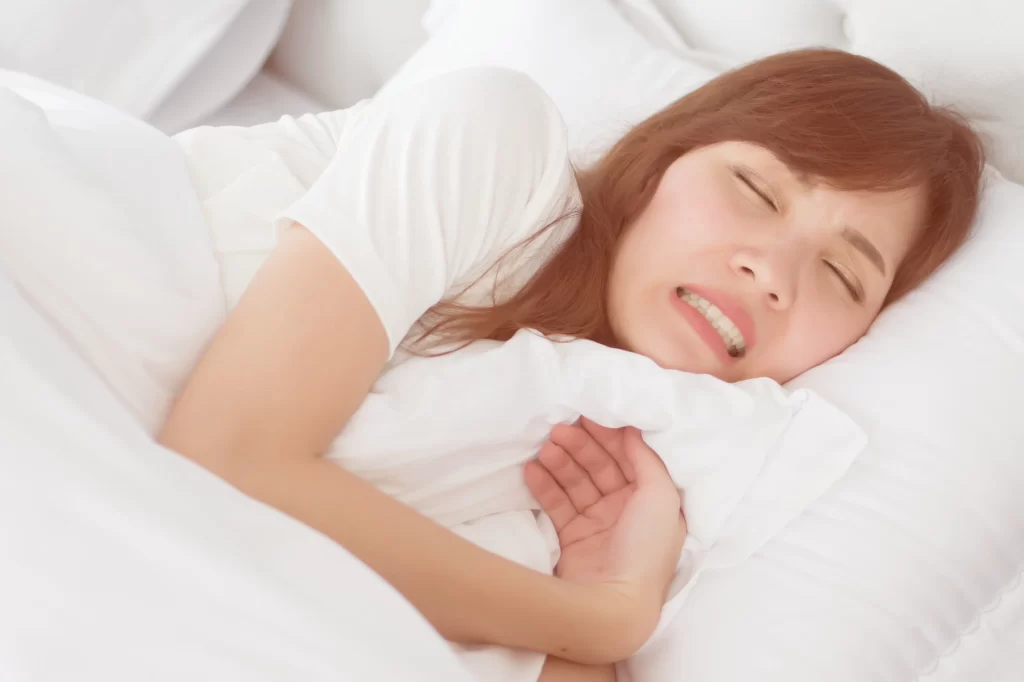
Some of the more tangible evidence of stress caused throughout the pandemic is the rise in stress-related dental health conditions reported by dentists all over the US. Since reopening their clinics, dentists are reporting a rise in chipped and cracked teeth cases, bruxism, temporomandibular joint (TMJ) disorder symptoms, and various periodontal diseases. As of September 2020, the American Dental Association (ADA) reported a 59.4% increased prevalence of bruxism, around 53% of chipped and cracked teeth cases and TMD symptoms, and almost 30% increase of periodontal disease cases.
Experts suggest this sudden increase of oral health issues are attributed to stress due to COVID-19. But how exactly does stress affect dental health and what are the things one can do to avoid such problems?
Understanding Stress-Related Dental Problems
Due to the uncertainty brought on by the Covid-19 pandemic, and the separation from their friends and family, a lot of people suffered from a great deal of stress and anxiety. Too much stress can result in teeth clenching and grinding (or bruxism). You might even notice that you are clenching your teeth while you’re awake.
The act of grinding your teeth can be a manifestation of that stress you’re experiencing. The intensity of the clenching can vary from one person to another. However, the impact of stress to your dental health is not limited to grinding. It can also make you more susceptible to infections, which can affect your gum tissue. On the other hand, stress can manifest in other forms such as development of canker sores, dry mouth, and many other oral health problems.
Other Covid-19 Related Dental Problems
Teeth grinding and other dental health issues that arise from Covid-19 can cause damage to your teeth – that’s a fact. However, this is not the only thing you need to worry about. In order to stop the spread of infection, it is mandatory to wear face masks everywhere you go these days. But this is making way for another form of dental health problem.
When you wear a face mask, it forces you to breathe through your mouth. This practice makes your mouth drier than usual. And when your mouth is dry, it is more prone to infection, especially in your gums. This is also something that you need to look into in this time of global pandemic.
How to Prevent Stress-Related Dental Problems
Since anxiety and stress are the leading causes of bruxism, managing it could be the key to prevent clenching and grinding of the teeth. Dentists can prescribe over-the-counter, non-steroidal anti-inflammatory drugs to manage the different types of pain caused by bruxism.
In most cases, they also prescribe the use of dental guards (also referred as mouth guards, night guards, nocturnal bite plates). This tool can provide cushion between the upper and lower teeth and minimize the tension and prevent damage to the teeth from constant clenching and grinding. Cheap mouth guards are available in drugstores. However, they are usually soft and squishy. Custom-made mouth guards are worth the investment as they are more effective in preventing your teeth from grinding.
There are generally two different types of night guards: soft night guard and hard night guard. The dentist will determine the right one for you depending on the severity of your bruxism and your preference.
If you’re suffering stress, whether it causes dental pain or not, one of the most important things to do is attempt to manage your stress and anxiety. Thus, performing activities that reduce stress such as breathing exercises, yoga, meditation, mindfulness exercises, along with staying physically active. Your doctor may also suggest cognitive behavior therapy to better manage anxiety and stress.
Final Words
Stress is a common part of life. In fact, stress can be a good thing as it can energize and motivate you to do certain things. But too much stress is never a good thing. The Covid-19 pandemic has caused many people to experience stress levels they have never known before. All of the changes to everyday life as we know it, lack of routines, and a constant flow of news.
While difficult, focus on limiting stress and aim to build a self-care ritual and look for other ways to channel negative energy. It is also a good time to visit your dentist regularly as they can help treat any dental health issues you have stemming from stress.
 During routine exams your dentist will look for wear or other signs of teeth grinding. If you do not regularly see a dentist you should schedule an appointment immediately as the damage can be permanent or costly to fix. Your dentist will ask you about your health, habits, and other factors, which may reveal the source of your bruxism.
During routine exams your dentist will look for wear or other signs of teeth grinding. If you do not regularly see a dentist you should schedule an appointment immediately as the damage can be permanent or costly to fix. Your dentist will ask you about your health, habits, and other factors, which may reveal the source of your bruxism.Your dentist will also likely recommend a dental appliance to either prevent you from grinding your teeth or at least prevent damage to them.
Splints and mouthguards are usually the most recommended form of controlling bruxism. It should be noted that splints are not a cure for bruxism, but merely a form of protection for your teeth. Worn at night, a splint keeps the teeth separated and prevents damage caused by grinding as well as eliminating the sounds that may disturb your bedpartner.
Mandibular Advancement Devices (MADs) are similar to a mouthguard in that they are worn orally. However, instead of preventing your teeth from coming together, they push your lower jaw down slightly and pull your tongue forward. MADs are a common dental treatment for obstructive sleep apnea as keeping the tongue in a forward position prevents it from collapsing back into the airways. MADs have also been shown to be effective in treating bruxism both with and without comorbidity of obstructive sleep apnea.
At The Alaska Sleep Clinic we specialize in treating dozens of sleep disorders found in thousands of patients every year. If you believe that you may have bruxism (or any sleep related disorders) and want help exploring potential diagnosis and treatment options, feel free to contact us by clicking the link below.












